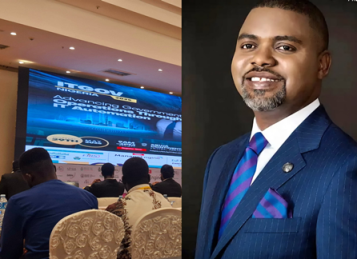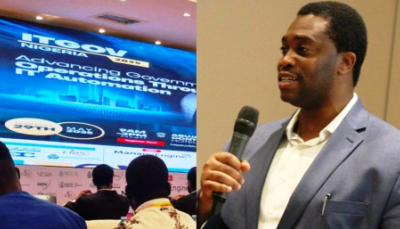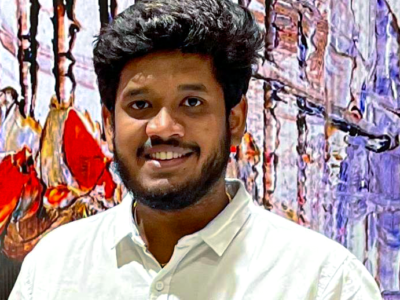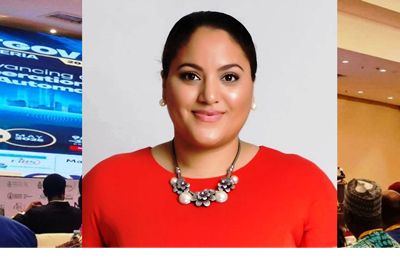Alhaji Ladi Ogunneye, past president of the Nigeria Computer Society (NCS) and currently provost, College of Fellows of the NCS spoke with IT Edge News. Com on the use of technology and the 2011 elections
Would you consider the 2011 elections by INEC [Independent National Electoral Commission] as generally free and fair?
On the election generally, INEC deserves to be rated high on credibility and good Intention for the following reasons:
INEC has so far been an unbiased umpire. No single evidence of being hands in gloves with ruling party, who admittedly (as
they say) paid the piper. As a matter of fact this INEC had the courage to take on the ruling party and their governors on
an issue that most Nigerians saw as more moral than legal. These are the PDP governors who sought and got court ruling
allowing them to commence their tenure afresh from the date they won rerun elections. INEC should be commended for the
accreditation and voting period arrangement; the open-secret mode of election; approval of photograph taking and video
recording of voting activities despite conflicting orders from some security agents; the open disclaiming of any of their
staff found to be involved in any election malpractice; the use of eminent and credible persons as election Returning
Officers; and the open televised collation of election results.
Does your view apply in terms of planning by INEC?
In the area of planning INEC could have done better. The bulk of the planning and process management were risky. Great
underestimation of delivery times, from DDC acquisitions to ballot paper printing. Most project administrators would not
touch such time bound projects with a ten foot pole. If not for the likes of the Zinoxs of this world who were bold and
deep enough to proactively put all their resources at risk to assist the Commission. Or those printers who were able to
accommodate the printing of ballot papers and result sheets within a delivery period of only four weeks, when ordinarily
the required quantity of paper would have taken just about that much time to acquire, not to talk of printing time proper.
This led to some of these documents arriving on the eve of an election, while some reputable printers opted out of the
process because of the impossible delivery requirement. If the Chairman and his team have the strong hearts to live through
the anxious moments, I pray they leave the nation at large out of such anxiety next time around. Why must we insist on
procuring the DDC equipment and the software within a few weeks, and give Nigeria yet another imperfect exercise when we
could have insisted on having more time to do a satisfactory and enduring job? The voters register developed and used for
this last election is definitely an unfinished job and not much of a departure from its predecessor.
Was technology effectively chosen and deployed to drive the process?
Again INEC could have done better on the use of technology. I know some people have asked whether INEC should have given
IT jobs of such magnitude to any company that is not registered with the relevant authorities in the country. Interestingly
it was the local company among the awardees that performed most credibly. There are also so many questions on the entire
process as far as the use of IT goes. Consider these: Is the voters list INEC used in 2011 any better than the one used in
2007? If not, why not? Why in 2011 must INEC use a Voters’ Registration Software that does not check and prevent
multiple-registration at source? How much freedom do IT civil servants in the Commission have with regards to giving honest
evaluation and recommendation on the different solutions brought to INEC. Is their input relevant to successive INEC
administrations? Has any of the ad-hoc staff used by INEC for the voters’ list registration been prosecuted for registering
under aged persons? These are some of the reasons why some of us are unable to rate INEC high when it comes to their usage
of IT. Besides all the above, while IT professionals were having their Society’s Annual Conference in Asaba- to which the INEC
Chairman was officially invited, and at which forum issues that will benefit the nation are usually discussed, INEC chose
that same week to invite IT vendors for demonstrations in Abuja. Members least expected such from the Chairman with a Trade
Union background, who could have intimated us of such timing at an official goodwill visit two weeks earlier.
Those are posers that point to the challenging of managing an electoral exercise in Nigeria…
One must admit that in spite of all the above, INEC may have succeeded in writing Nigeria’s name in the Guinness Book of
records for the feat of acquiring 120,000 DDC systems (laptops, finger print scanners and webcam cameras plus software) and
use it to register close to 70 million voters all within eight weeks. Someday, our brother and colleague in Zinox would be
letting us into his secret on how he was able to perform the magic of supplying close to seventy percent of the systems. He
has made us proud. You could say INEC achieved a phenomenal feat in that very short period it had to conduct an election of
this magnitude.
Now the elections are over, what next?
There are post elections expectations. One expects INEC to work on cleaning up the present voters’ list long before the
need to use them again. They need to rid the voters list of underage and multiple-registrants, which vital exercise they
obviously did not have the time to perform before the last election. There has to be a voters’ register clean up. INEC
must be willing and able to learn from the imperfections in the last elections. The bulk of the success story for INEC in
the last election is her credibility. That credibility will soon be put to test. Nigerians and the world will be watching
to see how INEC reacts and deal with revelations that the Election Tribunals may be throwing up. One of the unnecessary
problems the previous INEC administration curried was in trying too hard to defend imperfections that were created by
desperate politicians. The Nigerian citizenry of today are smart enough to not blame an unbiased umpire for crimes
committed by do or die politicians.
some believe INEC should be interested in knowing if indeed we can have the kind of very high percentage of voters’ turn-
out that were reported in some states in the last election. If we had a voters’ register that did not check multiple
registration at source or at collation, chances are that the register may be bloated by between five to ten percent
innocently and much more if intentionally. Therefore any voters’ turn-out of say ninety percent (90%) of this register is
really pointing at higher percentage of voters’ turn-out vis-à-vis the realistic voters’ list (if and when it is cleaned
up). Most observers are of the strong opinion that whatever imperfections found at the end of the day cannot in any way
change the overall result. However, INEC’s reputation will be enhanced if she can muster the courage to pursue this to its
logical conclusion. If not, the politicians would play it up to higher heavens next time around, while it will continue to
unnecessarily create doubts in some minds. In all, Nigerians must thank Prof. Jega and his team for the good intention and
credibility they have brought to the job. This has helped the country in breaking the jinx of failed elections that had
bedeviled us for the last many years. And above all, we thank God for the humble carriage of the Professor, which draws
people’s empathy and sympathy in his favour. What a difference it makes!




























